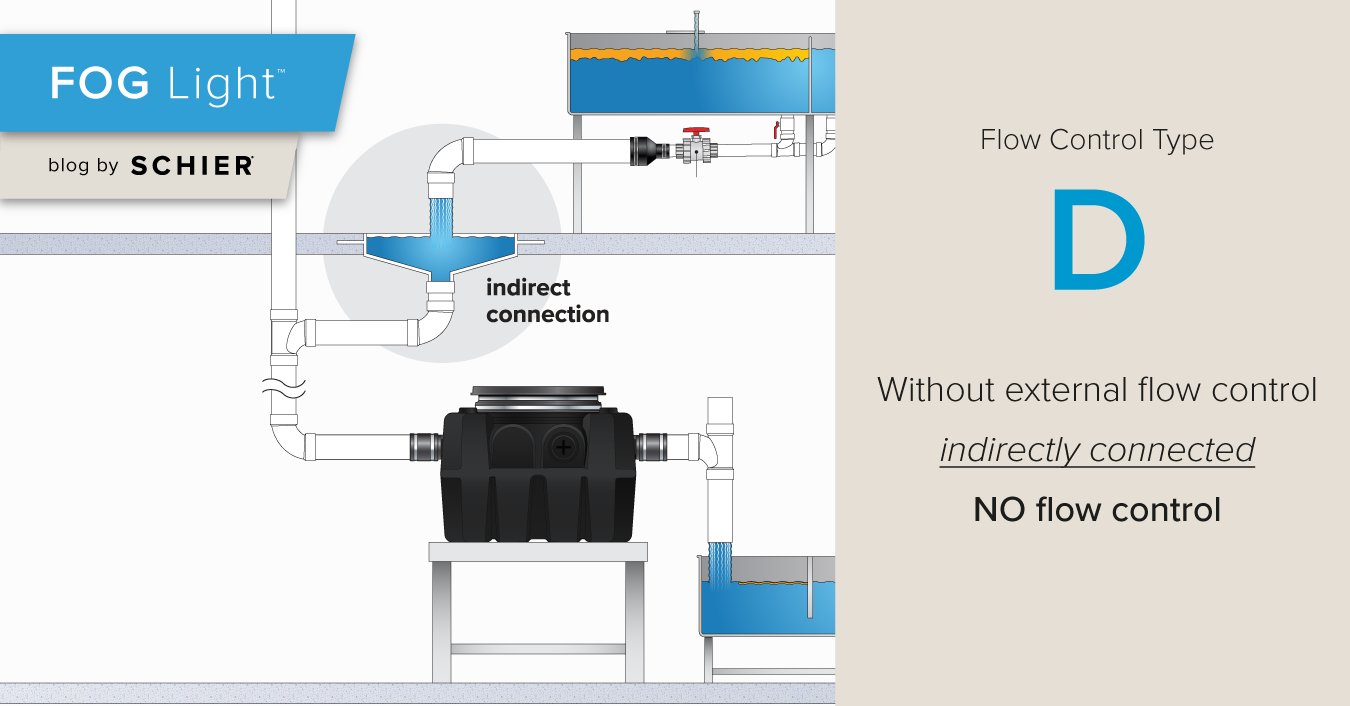May 31, 2023

Hydromechanical grease interceptors undergo rigorous testing and certification according to ASME/CSA standards, classified as Type A, B, C, or D. This classification ensures proper functionality, storage volume measurement, and efficiency assessment.
Traditionally, Schier exclusively tested interceptors to meet Type C standards, allowing for the inclusion of integrated flow controls - a pioneering approach. However, in recent years, Type D certification has become the preferred industry standard.
 What prompted this shift?
What prompted this shift?Authorities Having Jurisdiction (AHJs) within the industry have increasingly sought interceptors that do not necessitate flow controls. This adjustment aims to eliminate potential issues arising from flow restriction, which can lead to clogging complications in wastewater flow.
While flow controls were initially designed to regulate influent flow and enhance separation efficiency, real-world installations have revealed challenges. Incorrect setups have resulted in decreased grease interceptor performance, with smaller orifices prone to clogs and backups.
Schier has consistently argued that well-executed design can obviate the need for flow control. Creating systems that function effectively in high-pressure and high-flow conditions can handle typical pressure and flow scenarios even more efficiently. This approach not only benefits end-users but also aligns with the preferences of modern AHJs.
Furthermore, AHJs have increasingly mandated indirect connections in kitchens to prevent potential backups into sinks used for food preparation. In an indirectly connected system, blockages result in wastewater backing up onto the kitchen floor through a floor sink or drain, allowing for easier cleanup without the risk of contaminating consumables.
 No Flow Control? Is It Necessary?
No Flow Control? Is It Necessary?Engineering design and comprehensive testing have demonstrated that, if all interceptor components are functioning optimally, the flow control serves no essential purpose. Factors such as tank geometry, the length of inlet and outlet diffusers, and the water's entry direction into the interceptor are critical components, not reliant on the presence of a flow control. Creating a laminar environment inside the interceptor is pivotal for efficient grease capture.
Additionally, it's essential to question whether an installed flow control is genuinely serving its intended function. For grease interceptors certified as Type A under ASME A112.14.3, the flow control not only limits influent flow to the certified maximum flow rate but also introduces air into the flow path to enhance separation efficiency.
In contrast, for grease interceptors certified as Type C, the flow control solely restricts influent flow to the certified maximum rate without additional functions. This necessitates an evaluation of the flow control's necessity when the design can effectively handle high flow rates or pressures. Consequently, Type D rated grease interceptors undergo testing to ensure optimal performance without the inclusion of a flow control.
Ongoing advancements in engineering design and testing continue to enhance grease interceptors' efficiency. The conversation has shifted from a focus on flow rates to the interceptor's core functionality, emphasizing its role as an engineered and performance-certified device for grease capture. Grease Production Sizing is a critical aspect deserving of our attention and discussion.
Take action today and embrace the future of grease interceptors. Discover how design improvements and Type D certification are reshaping the industry. Join the conversation and prioritize efficiency over flow rates.